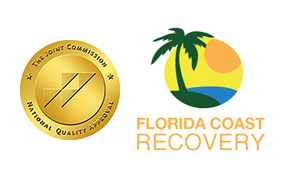How to Cope and Deal with Drug and Alcohol Addictions
Whether you are the person dealing with a loved one with an addiction to drugs or alcohol or the individual with the addiction, there are several things you need to know in order to properly cope, deal with, and face the addiction in a positive manner.
- Never set unrealistic expectations for the addict. You might try to entice the addict to quit by demanding they should do it if they really loved you or setting some other such condition. This never works long-term because the addiction is often much stronger. A better response is to let the addict know you love them and, together, are willing to help them face their addiction.
- Never participate in drug and alcohol treatment programs just to stop friends and family from nagging you about your addiction. If you are simply “going through the motions” for someone else, chances are you will relapse. In order for you to overcome your addiction, you must first want to stop and be willing to make changes in your lifestyle.
- Avoid believing you can stop on your own without any help. Some people think they can stop using whenever they want to and do not need help from friends, family, or a drug and alcohol detox center. There is much more to recovery than simply stopping and, while you might initially be successful, eventually, you may find yourself returning to your addiction.
- Never blame oneself for setbacks on the road to recovery. It is not uncommon for a recovering addict to slip up and have minor setbacks. Accept this and move on, without blaming yourself, because you have no control over an addict’s behavior, and, as an addict, overcoming your addiction is an ongoing struggle.
- Do not expect the addiction is “cured” after being released from rehab. Addictions are not something that can be cured and, instead, require ongoing treatment and support. Often they also require making major changes to prior lifestyles in order to establish a new, sober life.
- Do select a rehab program that is longer than 30 days. 30 days is simply not enough time to fully recover from an addiction. Addictions are developed over time, and it takes time to recover and rebuild one’s life. Treatment programs could involve a combination of inpatient and outpatient care for at least 90 days to 6 months or longer.
- Do seek counseling to help rebuild relationships. When one member of a family suffers from an addiction, it can damage the relationship between spouses, as well as between parents and children. Counseling can be beneficial for learning how to discuss the addiction and how it has affected the family, and to provide guidance on reintegrating the loved one back into the family without making them feel judged for their addiction.
If you are trying to cope or deal with a loved one suffering from an addiction, or are an addict that is ready to take the first steps to recovery, Florida Coast Recovery is here to help. Call us at 1-954-990-7101 today!


